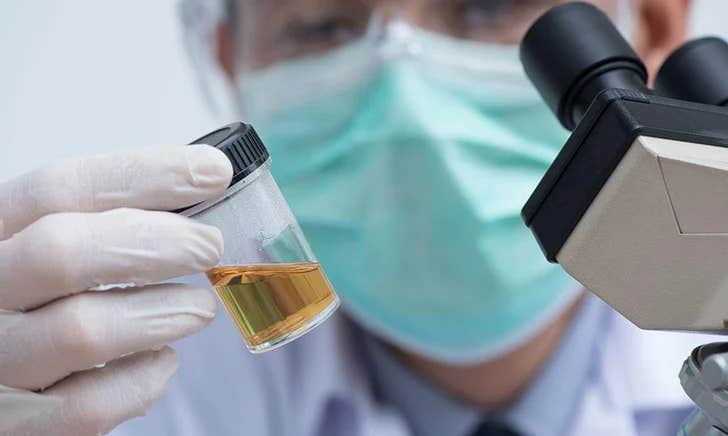Revolutionary urine test makes cervical cancer screening more accessible
Recent research suggests that assessing the cancer-causing activity of HPV might provide a more accurate evaluation of cancer risk.

The research team utilized ELISA to detect the E7 oncoproteins in urine samples. 9CREDIT: Creative Commons)
Cervical cancer remains a significant health issue for women globally, with approximately 660,000 new cases and 350,000 deaths recorded in 2022. Almost all these cases are linked to high-risk human papillomavirus (HPV) infections. Traditional screening methods primarily involve detecting HPV DNA, but recent research suggests that assessing the cancer-causing activity of HPV might provide a more accurate evaluation of cancer risk.
A groundbreaking study led by Professor Etsuro Ito from Waseda University in Japan, along with Professor Toshiyuki Sasagawa from Kanazawa Medical University and Dr. Martin Müller from the German Cancer Research Center, aimed to develop an ultrasensitive enzyme-linked immunosorbent assay (ELISA) to detect high-risk HPV16 E7 oncoproteins in urine. Their findings, published in the journal Microorganisms, highlight a potential shift in cervical cancer screening methods.
Professor Ito states, “Cancer can be prevented by vaccination before it develops and by regular screening. But screening is a big hurdle for young women.” He emphasizes, "Our new urine test can detect HPV16 E7 proteins, which are critical markers of cervical cancer risk, at extremely low levels. This means that women may be able to screen for cervical cancer without the discomfort and inconvenience of a traditional Pap test."
Currently, cervical cancer screening methods involve Pap smears or HPV DNA tests, both of which necessitate a healthcare visit and can be uncomfortable for many women. The newly developed urine test offers a noninvasive alternative, potentially encouraging more women to undergo regular screening.
The research team utilized ELISA to detect the E7 oncoproteins in urine samples. The test successfully identified these proteins in women with varying stages of cervical intraepithelial neoplasia (CIN), a precursor to cervical cancer. Specifically, the ELISA test detected E7 proteins in 80% of women with CIN1, 71% with CIN2, and 38% with CIN3, indicating that the presence of E7 oncoproteins is more common in lower-grade CIN lesions. The researchers suggest that this discrepancy might be due to differences in the HPV life cycle or oncogenic activity.
“We believe that the E7 oncoprotein is critical in the early stages of HPV-related cervical carcinogenesis and may play a more significant role in the progression of CIN1 and CIN2 than in CIN3,” Ito explains.
This innovative method aligns with global health objectives to reduce cervical cancer rates, especially in low- and middle-income countries where access to traditional screening is limited. With further development and validation, this urine test could become a standard tool in cervical cancer prevention, aiding in earlier detection and treatment.
The development of a noninvasive urine test for detecting HPV-related proteins marks a significant advancement in cervical cancer screening. It presents a promising solution to increase screening rates and reduce cervical cancer incidence worldwide.
Professor Ito concludes, “This new method holds great promise for early detection and prevention of cervical cancer. We are optimistic that further development and validation of this assay will lead to its widespread use in clinical settings.”
Note: Materials provided above by the The Brighter Side of News. Content may be edited for style and length.
Like these kind of feel good stories? Get the Brighter Side of News' newsletter.
Joshua Shavit
Science & Technology Writer | AI and Robotics Reporter
Joshua Shavit is a Los Angeles-based science and technology writer with a passion for exploring the breakthroughs shaping the future. As a contributor to The Brighter Side of News, he focuses on positive and transformative advancements in AI, technology, physics, engineering, robotics and space science. Joshua is currently working towards a Bachelor of Science in Business Administration at the University of California, Berkeley. He combines his academic background with a talent for storytelling, making complex scientific discoveries engaging and accessible. His work highlights the innovators behind the ideas, bringing readers closer to the people driving progress.



